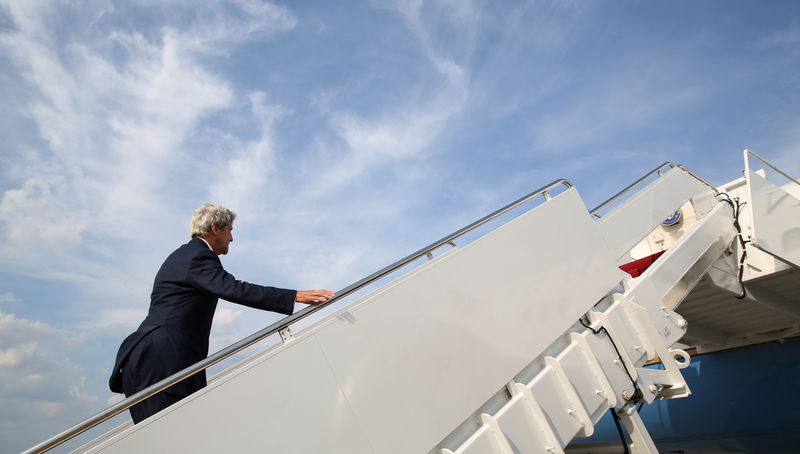WASHINGTON (Reuters) - U.S. Secretary of State John Kerry will meet Russia's foreign minister in Geneva about a ceasefire deal for Syria, the State Department said on Thursday in a sudden about-face after saying it did not believe a meeting was worthwhile.
Less than an hour after the U.S. State Department said it had no travel to announce for Kerry, spokesman John Kirby announced that the top U.S. diplomat would meet his counterpart, Sergei Lavrov, on Friday. The Russian minister arrived in the Swiss city earlier on Thursday.
"Their discussion follows recent conversations on Syria and will focus on reducing violence, expanding humanitarian assistance for the Syrian people, and moving towards a political solution needed to end the civil war," Kirby said in a statement.
It was unclear what led to the change of plan. Kerry and Lavrov have spoken four times in two days to try to reach an understanding on how to halt the violence in Syria and open up humanitarian delivery routes into cities such as Aleppo.
In Geneva, Lavrov met with U.N. Special Envoy Staffan de Mistura, who has the diplomatic task of trying to end the five-year war, which has claimed an estimated 400,000 lives and driven tens of thousands of refugees into Europe.
The United States and Russia have backed opposite sides in Syria's civil war, which shows little sign of ending after 5-1/2 years of violence in which half the pre-war population has been uprooted. Moscow supports Syrian President Bashar al-Assad, whom Washington believes must eventually go.
"We're just not at a point where we believe ... that it's worth his while to go have a meeting," State Department deputy spokesman Mark Toner had told reporters earlier. He said Kerry was willing to meet when the two sides are closer to an agreement and the United States believes it would be useful.
Under the plan being discussed by Kerry and Lavrov, a cessation of hostilities agreement would halt violence in areas where Syrian government forces and opposition fighters have been battling each other, opening up humanitarian aid corridors.

Russia has insisted that opposition groups, backed by the United States and Gulf allies, separate from al-Qaeda-linked militants in cities such as Aleppo. Washington wants Assad's air force grounded to halt its attacks on opposition forces and civilians.